Fulbright Celebrates the 30th Anniversary of the Americans with Disabilities Act
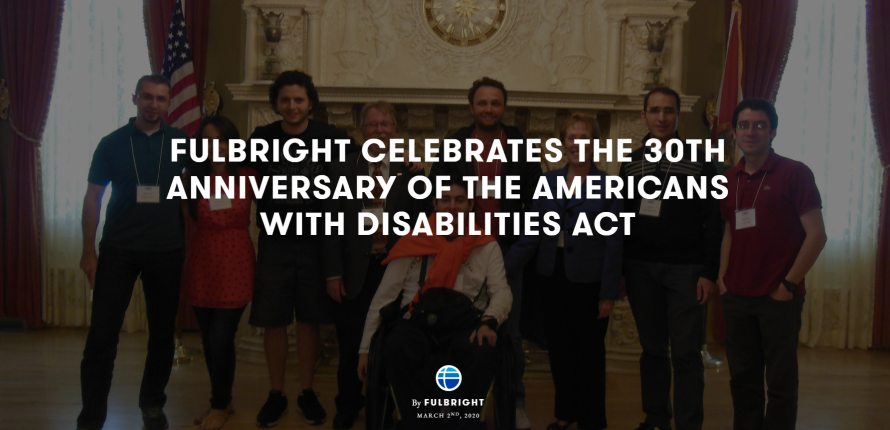
Thirty years ago, the United States became the first country in the world to adopt national civil rights legislation banning discrimination against people with disabilities. Since that time, the Americans with Disabilities Act (ADA) has had a profound impact both at home and abroad.
From January - December 2020, the Fulbright Program celebrated the ADA’s 30th anniversary with monthly features of Fulbrighters with disabilities, as well as Fulbrighters who work with communities of people with disabilities. Throughout the year, we read and listened to these Fulbrighters’ rich and varied experiences, and how they used and continue to use their platforms to educate, engage with, and empower people with and without disabilities around the world.
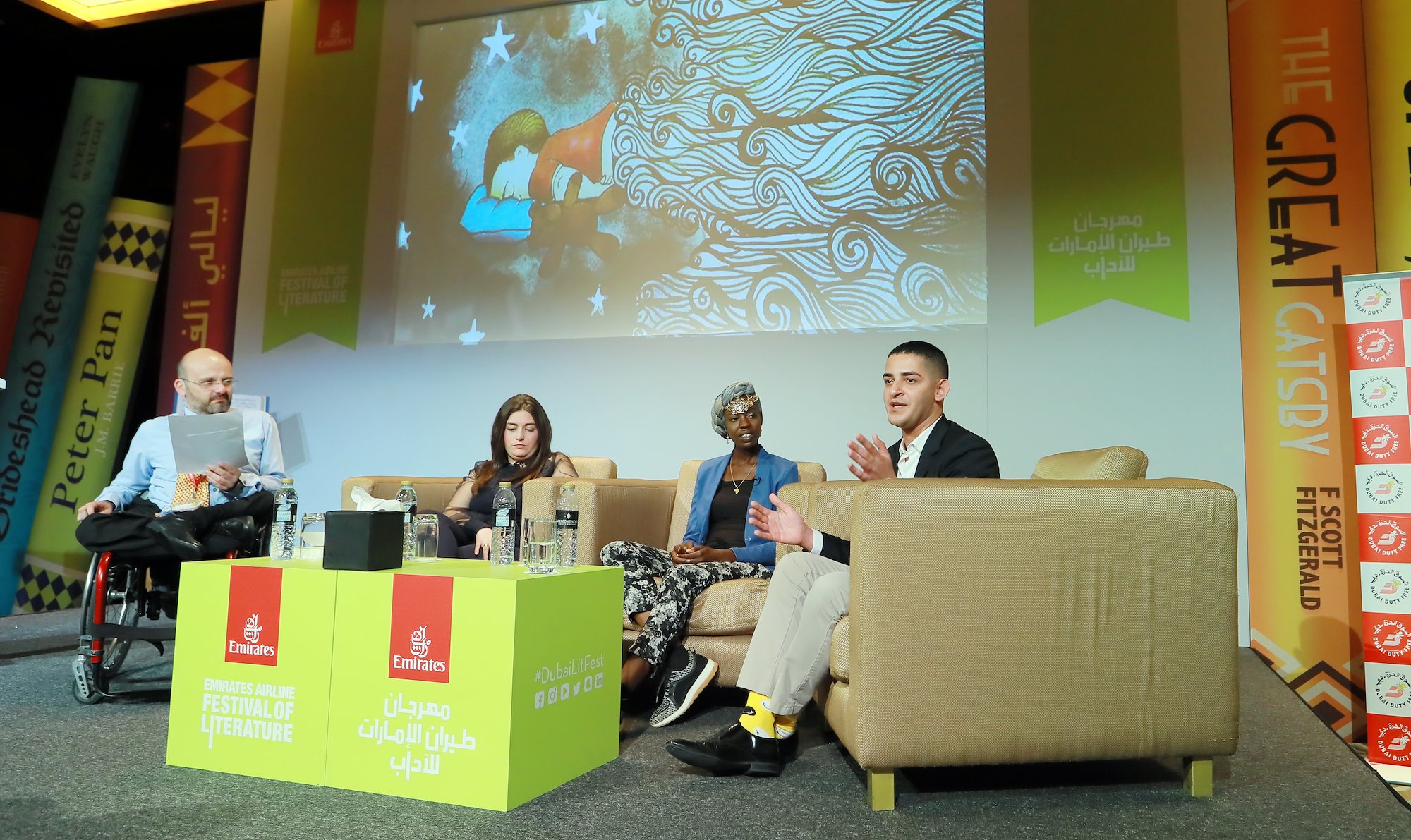
JANUARY
Our first ADA-focused Alumni Spotlight comes from the Fulbright Program for the Middle East and North Africa blog. Hazem was inspired by his Fulbright experience to “ensure the world we live in becomes friendlier for all of us, including those with different abilities.” He has advocated for people with disabilities in Syria and the wider Middle East, and focuses in part on their presence in the workforce. Read more about his story here.
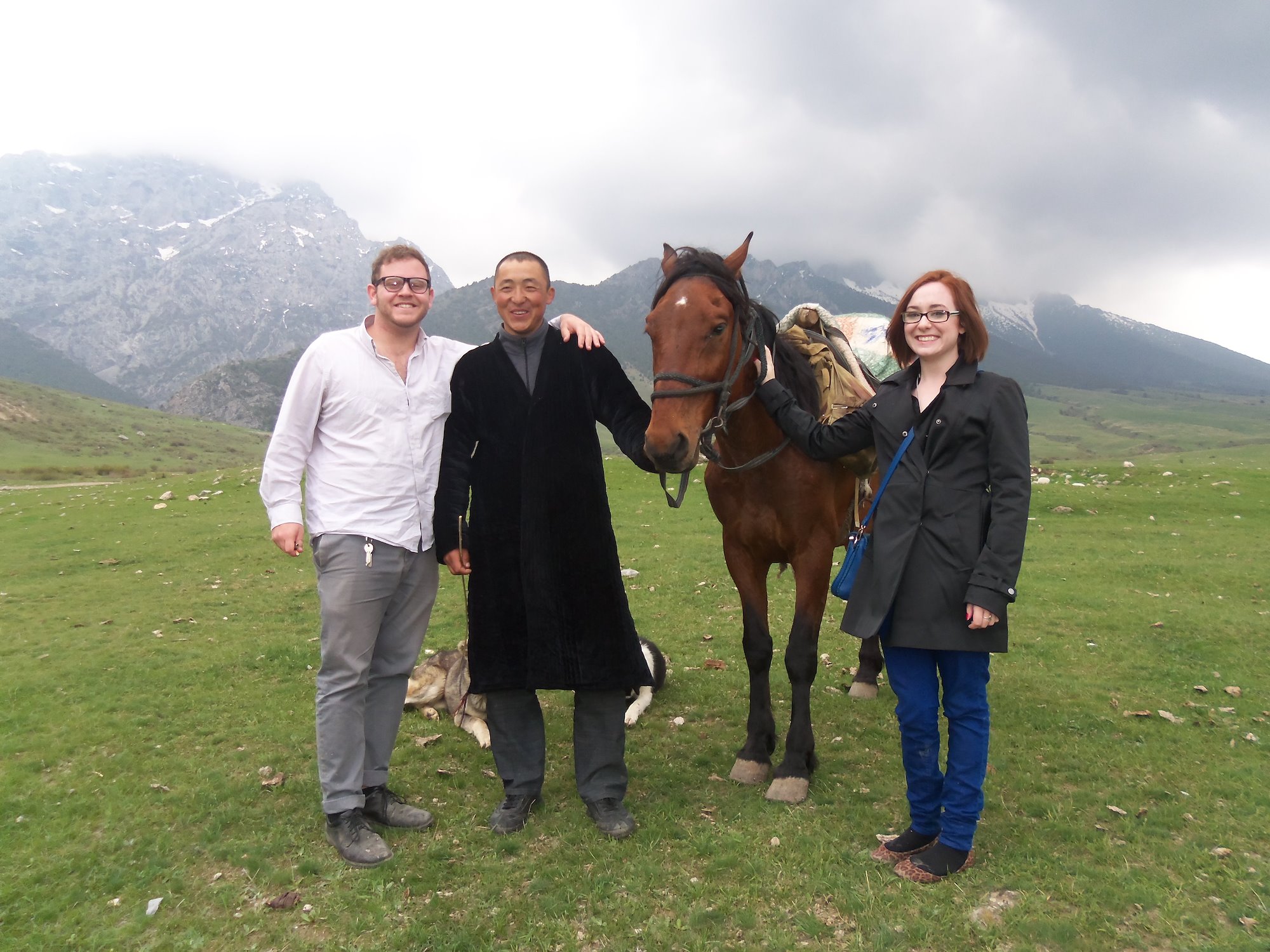
FEBRUARY
In February, we highlighted Alumni Ambassador Alyssa Meyers (pictured), an ETA to the Kyrgyz Republic from 2012-2013. In her Q&A feature, Alyssa offers advice to future Fulbright applicants and shares how a harrowing experience while hospitalized in Kyrgyz Republic led to an insight that changed the course of her life and work. You can also listen to Alyssa's 22.33 podcast episode here. The transcript is available on the 22.33 website (Season 01, Episode 83). We also featured Kenny Fries, an award-winning author and teacher in the MFA in Creative Writing program at Goddard College. Fries spoke with Mobility International USA's podcast Ripple Effects about how his Fulbright experiences influence his work as a writer, the differences in disability history and culture in Germany and Japan, and his plans for future research and book projects. Listen here.
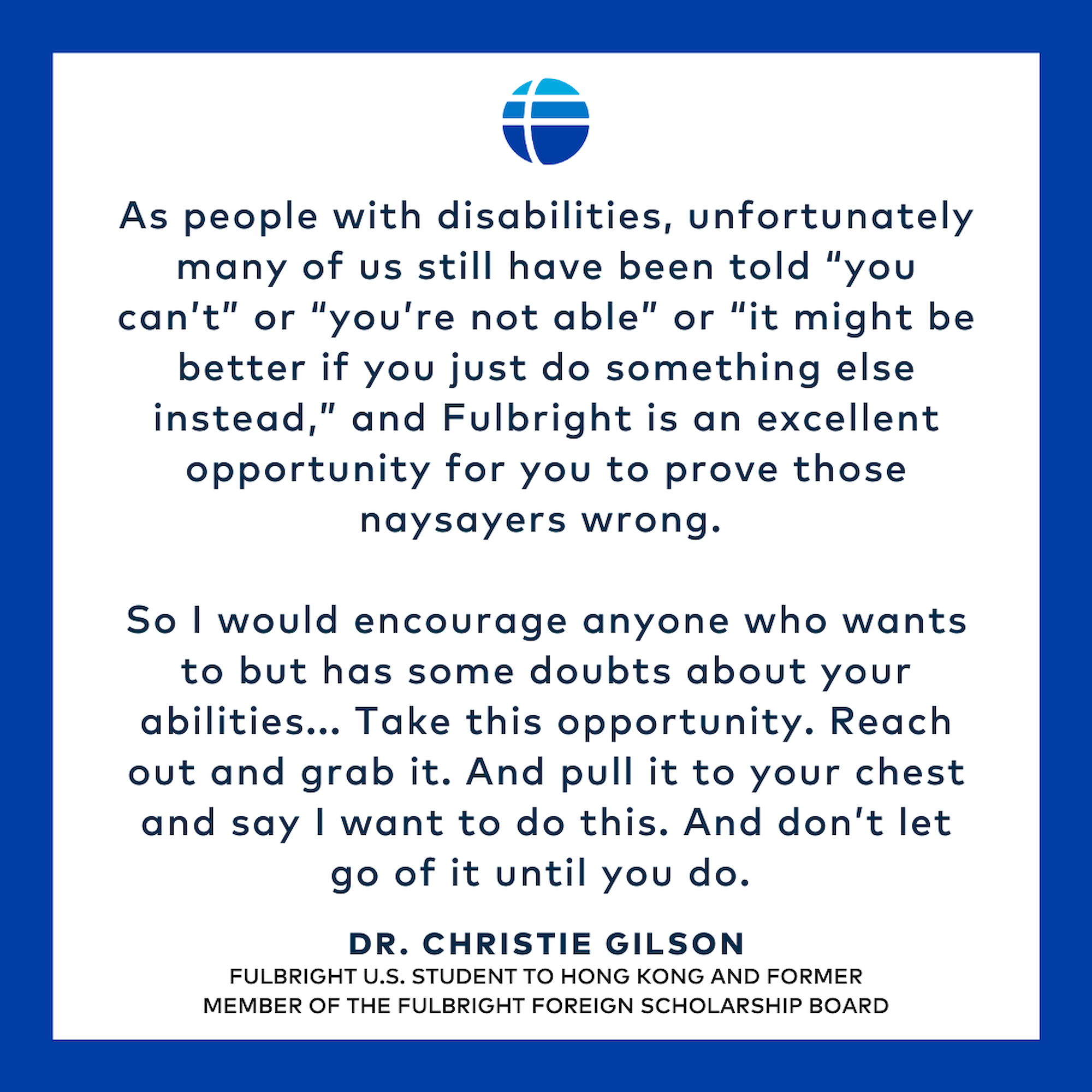
MARCH
For March, the Fulbright Program collected three episodes featuring alumni with disabilities from different seasons of Mobility International USA's podcast, Ripple Effects. Each alumnus spoke about their Fulbright experience and why prospective applicants with disabilities should consider the Fulbright Program.
Episode four of season one highlights Dr. Christie Gilson, a U.S. Student alumna and a former member of the J. William Fulbright Foreign Scholarship Board. Dr. Gilson, who is blind, has taught English to blind adults and mentored youth in several countries. For episode four of season two, Fulbright Foreign Student alumnus Sergio Medina, who is hard of hearing, spoke about his experiences attending university in the United States. Finally, episode 6 of season 3 features Joseph Hill, a deaf African-American researcher who went to Italy to further study the intersection of culture and linguistics.
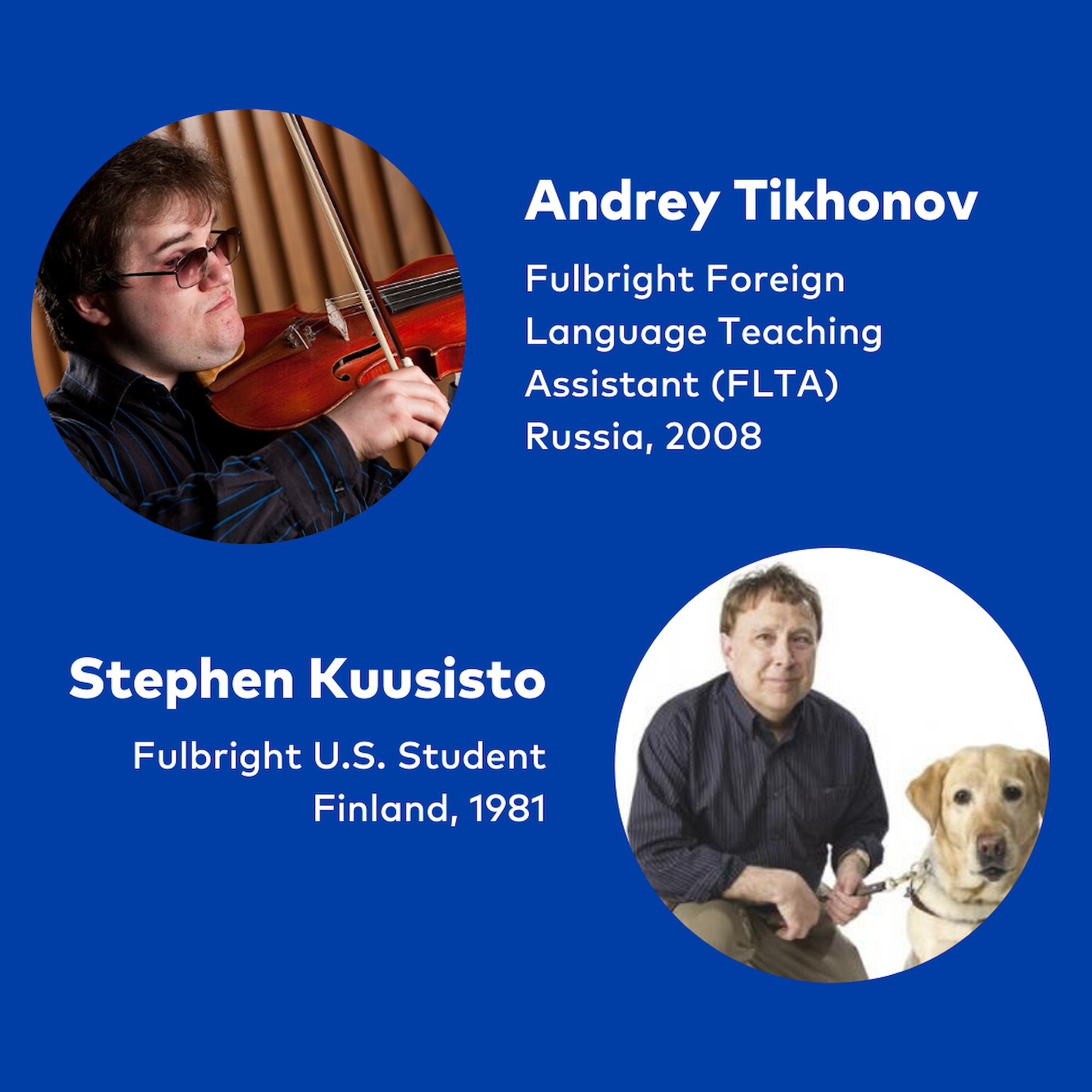
APRIL
In April, the Fulbright Program featured Foreign Language Teaching Assistant alumnus Andrey Tikhonov and Professor Stephen Kuusisto, a Finnish-American Fulbrighter.
Andrey, who is blind, taught Russian at Michigan State University in 2008. In addition to his language classes, Andrey used his skills as a musician to teach various instruments and music braille classes to MSU students. Andrey's experience at MSU gave him a "new feeling of freedom" and the confidence to accomplish whatever he set his mind to do.
After his Fulbright, Andrey has been pursuing his PhD in Poland at the University of Wroclaw. He is researching the role of non-profit organizations in lobbying interests of persons with disabilities. He also gave the opening address at the 2015 FLTA Mid-Year Conference. You can read about Andrey's experiences on the official Fulbright Program website or the MSU Resource Center for Persons with Disabilities blog.
Professor Stephen Kuusisto, who has been blind since birth, is a poet, author, university professor, and disability advocate. He was a Fulbrighter to Helsinki in 1981, where he researched international outlooks in postwar U.S. and Finnish poetry. Since his Fulbright, he has written seven books, including autobiographical essays and short story and poetry collections, and has traveled extensively with the U.S. Department of State as a cultural ambassador.
The Finnish Fulbright Commission featured Professor Kuusisto in its magazine, where he spoke about his experience in Helsinki, his work advancing disability rights, and the importance of intercultural education.
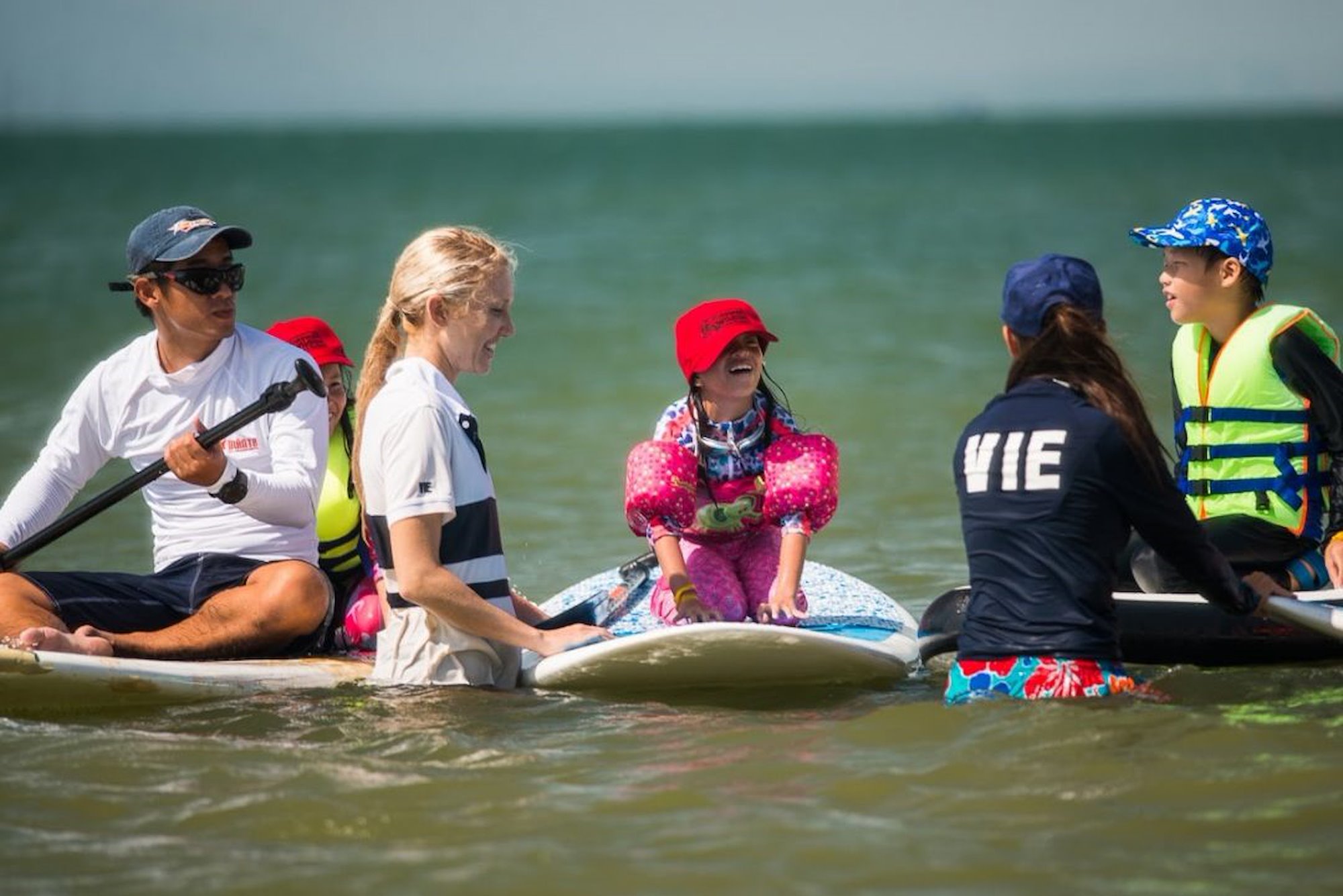
MAY
In May, the Fulbright Program featured a blog written by Emi Koch, a 2019-20 Fulbright-National Geographic Storytelling Fellow to Vietnam. Emi, who was diagnosed with Dyslexia (a learning disability in reading), Dyscalculia (a learning disability in math), and Attention Deficit Hyperactivity Disorder (ADHD), writes about growing up with her learning disabilities and eventually coming to accept them as "superpowers." A social ecologist, Emi also details her Fulbright experience in Vietnam, where her research focused on fishing communities suffering from depleting marine resources.
"I’ve come to realize that my disabilities are like superpowers — if harnessed properly, they enable me to explore nuances — whether of a physical space, a word in a foreign language, or a feedback loop in a marine social-ecological system. These overlooked subtleties are where the problems hide… those details researchers seek in order to solve problems. In that ability to spot those details lies the ability to find the extraordinary in the ordinary."
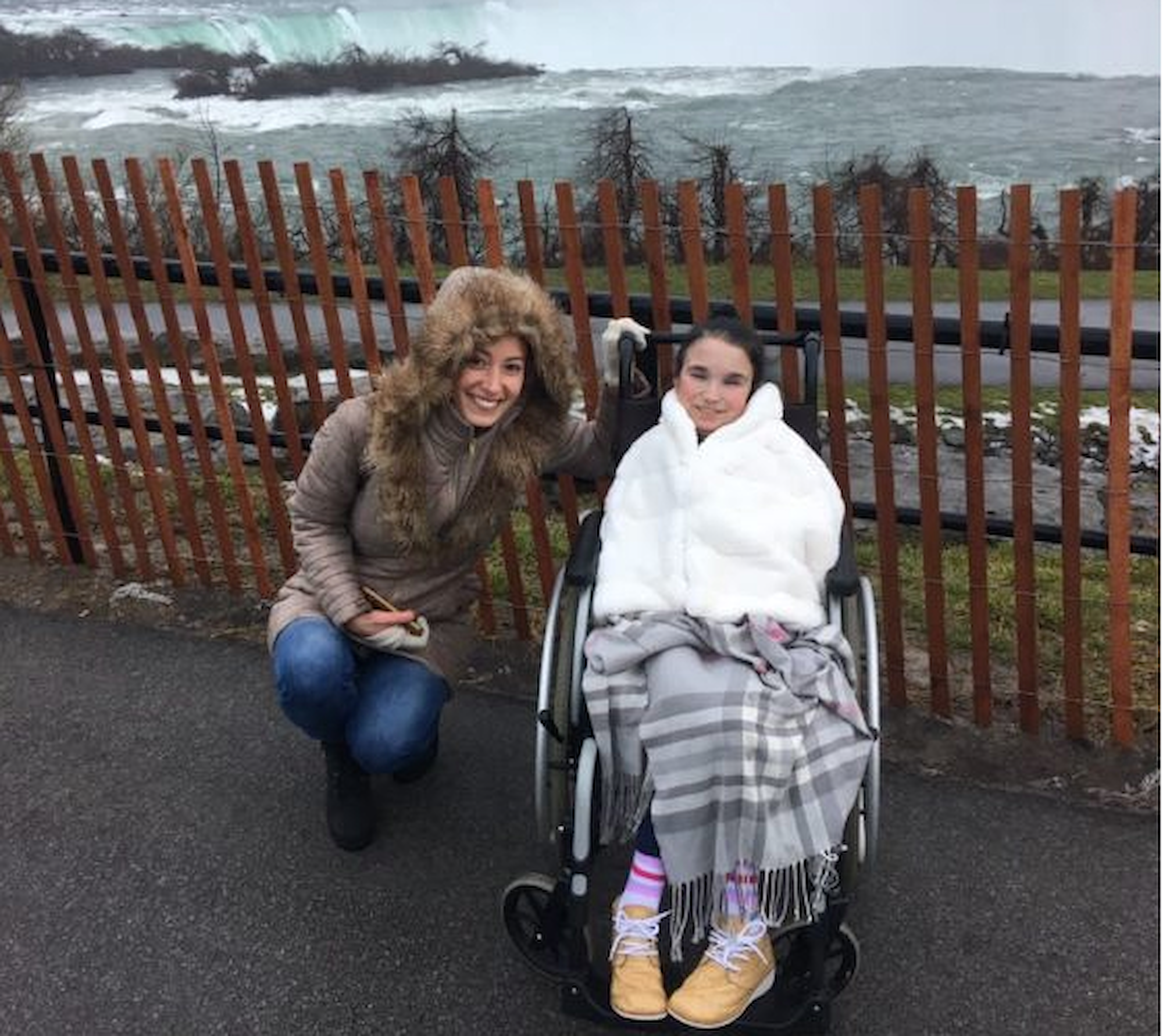
JUNE
Our June ADA feature is from the archive, but is a milestone nonetheless: Miroslava Mima Ivanović was the first Montenegrin Fulbrighter with a disability to go on the program. In 2018, Miroslava left Montenegro to spend three months at the Syracuse University College of Law, Disability Law and Policy Program. While she notes in her alumni blog for the U.S. Embassy that the trip was a challenge and a risk, her participation was "more than worth it." Miroslava currently serves as the Executive Director of the Initiative of Youth with Disabilities of Boka in Montenegro.
"I was amazed with the American approach to every person, which enabled every individual to realize and offer to society his/her potential. This approach is unmeasurably important for persons with disabilities who are provided with all necessary support, especially by their families, in order to utilize all of their potential. These experiences crucially influenced my point of view and determined my future activities in Montenegro in this area.
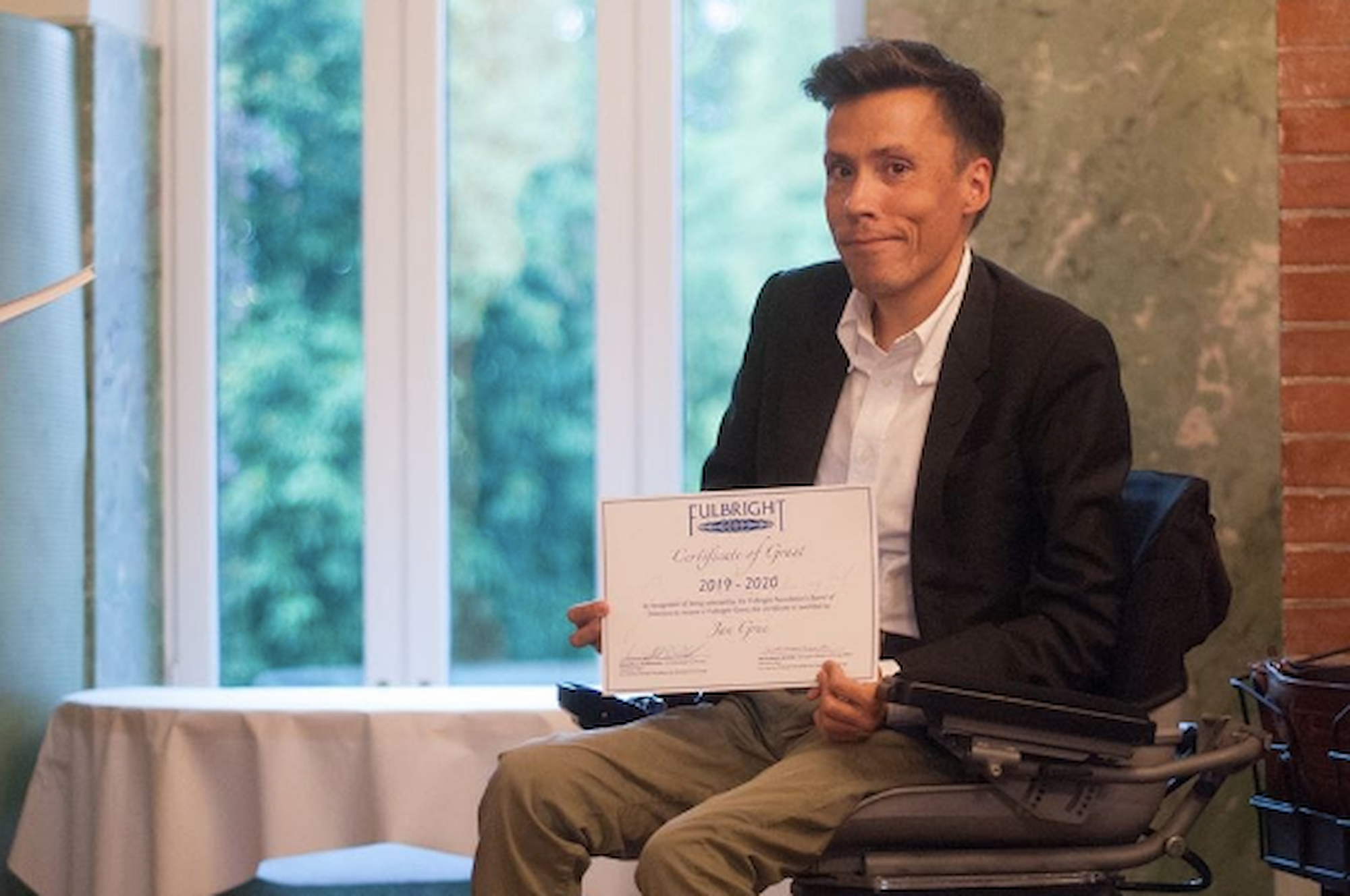
JULY
July 26, 2020 marks the 30th anniversary of the Americans with Disabilities Act. As the United States continues to celebrate this monumental achievement, we are proud of Fulbrighters around the world who are engaging with, learning from, and empowering communities of people with disabilities in all areas of society.
In July, we featured Jan Grue, a 2008 Foreign Student and 2018 Visiting Scholar alumnus from Norway, and Bojana Coklyat, a U.S. Scholar to the Czech Republic. Jan, an author who has written for various genres, studies the “biopolitics of disability" -- how the bodies of people with disabilities become subject to control under different regimes. His aim is to extend interdisciplinary collaboration and to gain more knowledge about the preconditions for social justice. Bojana examines access, visibility, and inclusion in the arts for people with disabilities in a contemporary society. You can read Jan's feature here, and listen to his TEDx Talk on disability studies, on the flagship Fulbright Program social media accounts. Learn more about Bojana's experience from her blog, written for the Fulbright Commission in the Czech Republic.
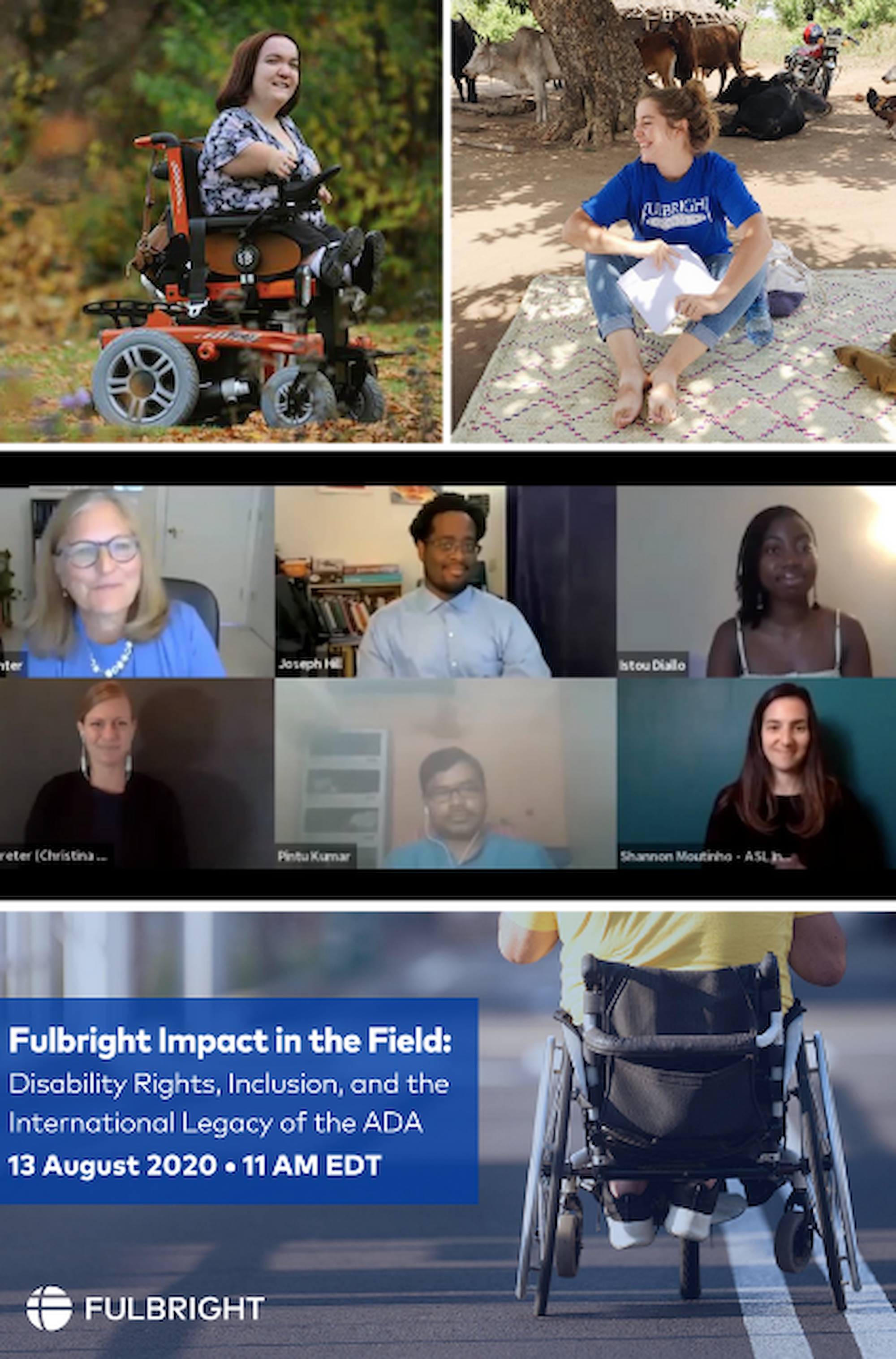
AUGUST
In August, the Fulbright Program hosted Fulbright Impact in the Field: Disability Rights, Inclusion, and the International Legacy of the ADA. The virtual event, moderated by Professor of Disability Law and 2009 Fulbright U.S. Scholar to Israel Arlene Kanter, featured alumni panelists with disabilities who are accessibility and inclusion advocates to discuss the global impact of the Americans with Disabilities Act. The panelists -- Istou Diallo (2018 U.S. Student to India), Joseph Hill (2007 U.S. Student to Italy), and Pintu Kumar (2015 Visiting Scholar from India) -- discussed intersectionality in the disabled community, the benefits of international exchange for people with disabilities, and what accessibility means in different countries. You can view a recording of the panel here.
On social media, we featured 2015 Fulbright ETA to Germany Allyssa Schoenemann and 2018 U.S. Student to Uganda Mary Ann Etling. Allyssa, who was born with Diastrophic Dwarfism and is currently an English and Special Education teacher, notes that her Fulbright “inspired me to be more culturally aware of the world around me.” Mary Ann researched barriers that impact local children with disabilities while in Uganda, and is now part of a global effort to create an interactive disability resource map for caregivers of children with disabilities in Kenya.
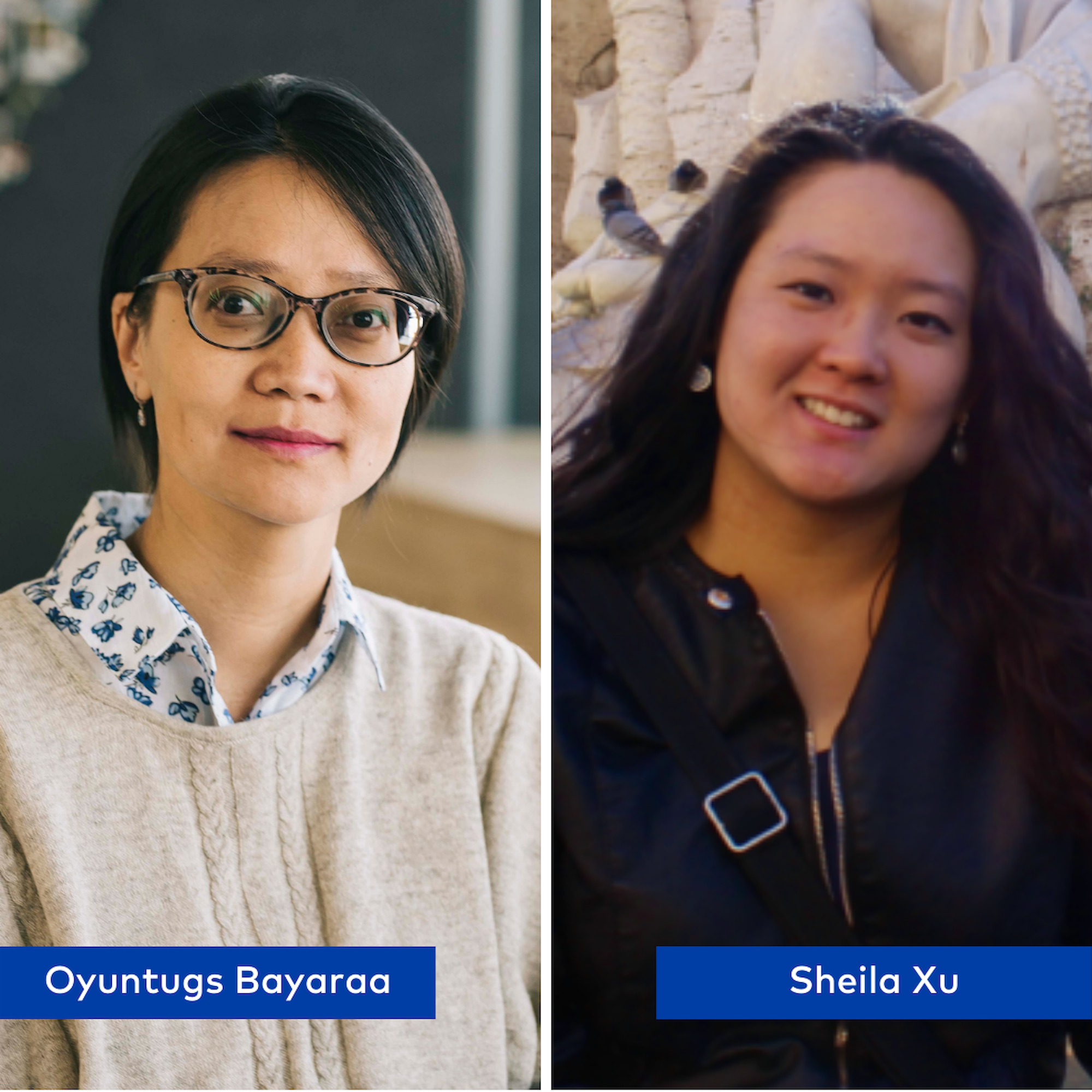
SEPTEMBER
In September, the Fulbright Program featured two alumnae of the program who now use the skills they learned abroad to help others succeed. 2016 Fulbright Foreign Student from Mongolia Oyuntugs Bayaraa, who is visually impaired, recently received a master’s degree in rehabilitation counseling from the University of Arkansas. Now back in Mongolia, she works with the Mongolian Association of State Alumni to broaden educational opportunities for youth with disabilities, especially those affected by hearing impairments. Watch a video of Oyuntugs explaining these initiatives here.
Fulbright U.S. Student alumna Sheila Xu recently wrote a short resource guide for people with disabilities to use when it becomes safe to travel again. The guide, which is forthcoming, draws from Sheila’s experiences in Italy during her Fulbright in 2016. Sheila now works as a business communications consultant and is a public speaker on subjects such as deaf culture, deaf travel, accessibility and inclusion, and international exchange opportunities and resources for the deaf. Read more about Sheila’s experiences in Italy on the Fulbright U.S. Student blog.
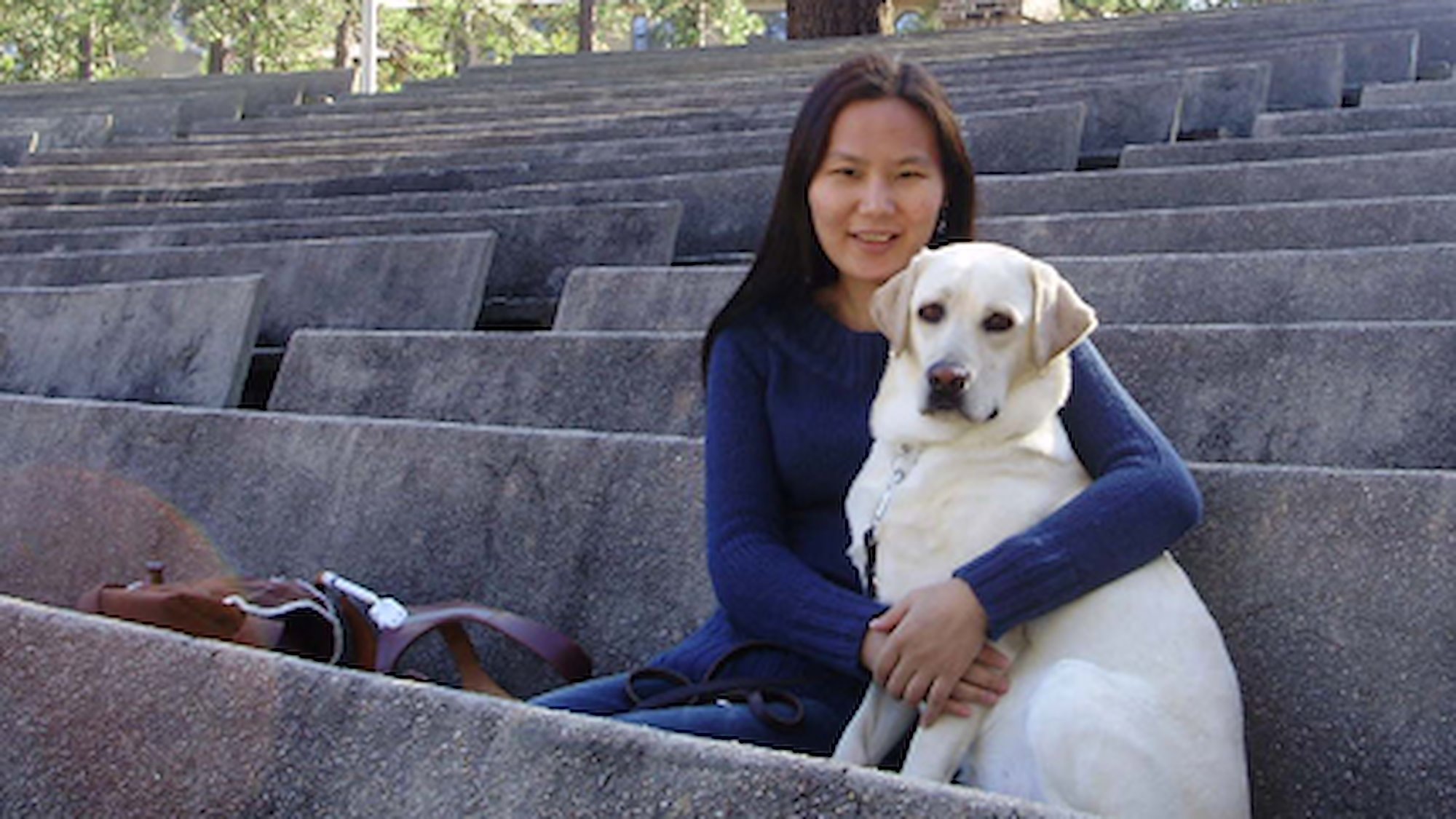
OCTOBER
In October, 2007 Fulbright Foreign Student alumna Uyanga Erdenebold wrote a blog post about her experience growing up blind in Mongolia and her journey to becoming the first blind Mongolian Fulbrighter. During her Fulbright, Uyanga found newfound independence as a person with a disability and trained with a guide dog for the first time. Since her time in the United States, Uyanga has served as a Cultural Affairs Specialist for the U.S. Department of State in Mongolia, working on programs such as Fulbright. She was also an advisor and manager for the board of directors of the Mongolian Association of State Alumni (MASA).
“Fulbright helped me to see the world, and the experience not only changed the course of my life, but more importantly, it changed me as an individual. ... Until I came to the United States, I had never gone anywhere by myself. I had never learned to walk with a cane. I was always accompanied either by a family member or a friend. Do you know what a privilege it is to be able to walk alone with your thoughts, stopping whenever or wherever you want to, taking as long as you would like to reach a certain place, just to wander around by yourself? That’s what the United States gave me: personal freedom.”
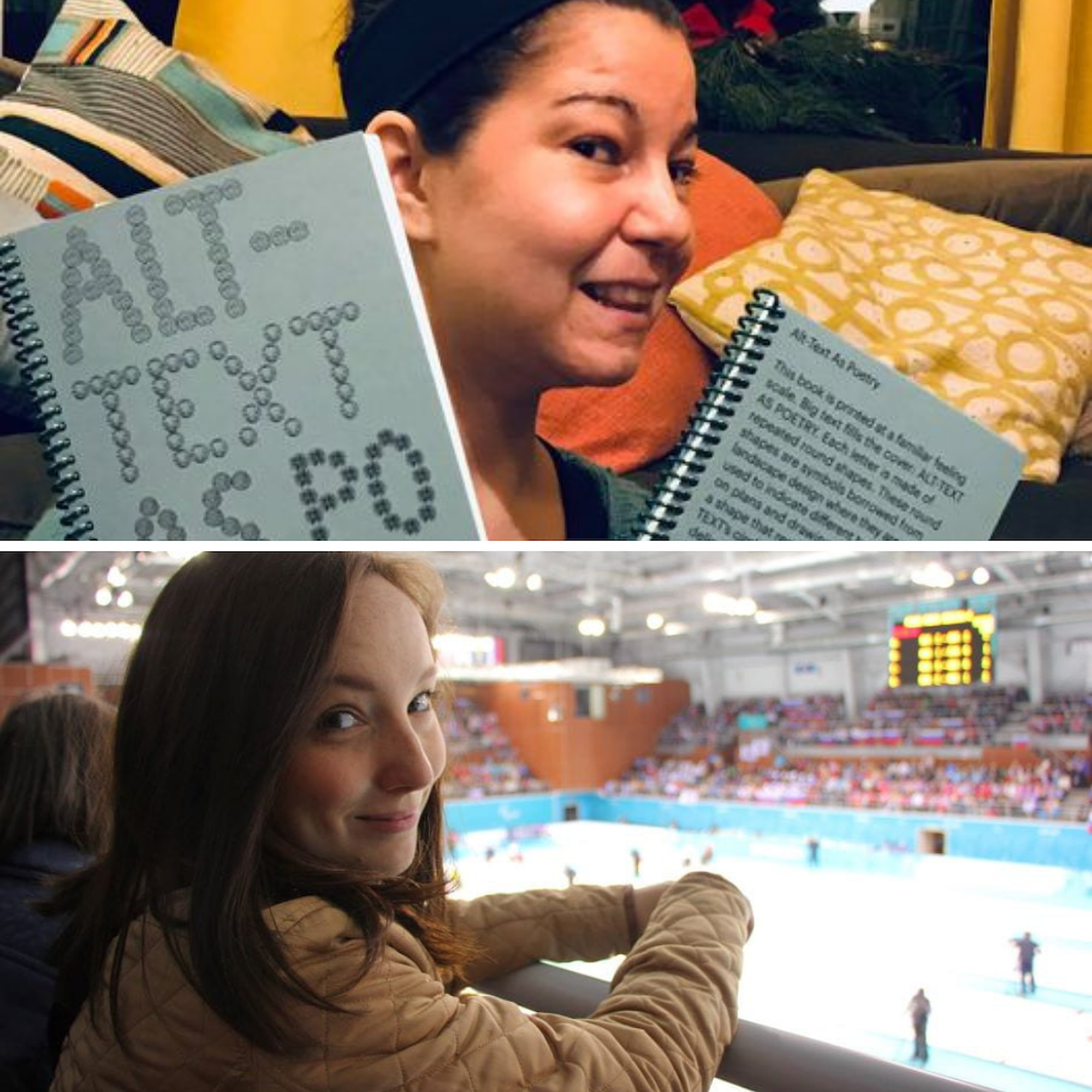
NOVEMBER
In July of this year, the Fulbright Program highlighted Bojana Coklyat, a 2019 Fulbright U.S. Scholar to the Czech Republic who is also a disabled artist. Bojana has since launched a new project called “Alt-text as Poetry” in collaboration with another disabled artist, Shannon Finnegan. Alt-text is used on websites to describe the appearance and function of an image on a page for site visitors who use screen readers.
“Alt-text as Poetry” aims to shift public perception of alt-text from something that is “overlooked altogether or understood solely through the lens of compliance” to poetry, or another type of creative expression. The project contains a workbook that provides examples of poetic alt-text, and walks the reader through exercises of writing poetic and more descriptive alt-text, as well as why such descriptions are important. “Alt-text as Poetry” is supported by the Disability Visibility Project, which is “an online community dedicated to creating, sharing, and amplifying disability media and culture.”
In November, we highlighted Olga Khokhryakova, a 2019 Fulbright Foreign Student from Russia, who created a digital platform called SameSport, which connects people with and without disabilities through shared sports activities. Her goal is to reduce stigma and prejudice while enhancing social inclusion. Olga is currently studying Community Health Promotion at the University of Arkansas and works to prioritize accessibility and inclusion for people with disabilities.
DECEMBER
The National Clearinghouse on Disability and Exchange (NCDE), a Department of State-sponsored program, recently launched their first “Access to Exchange Externship” -- an opportunity for people to share and implement their innovative ideas to promote disability inclusion in international exchange. The externship included a virtual outreach component meant to educate more people with disabilities about access to international exchange and the benefits of participating.
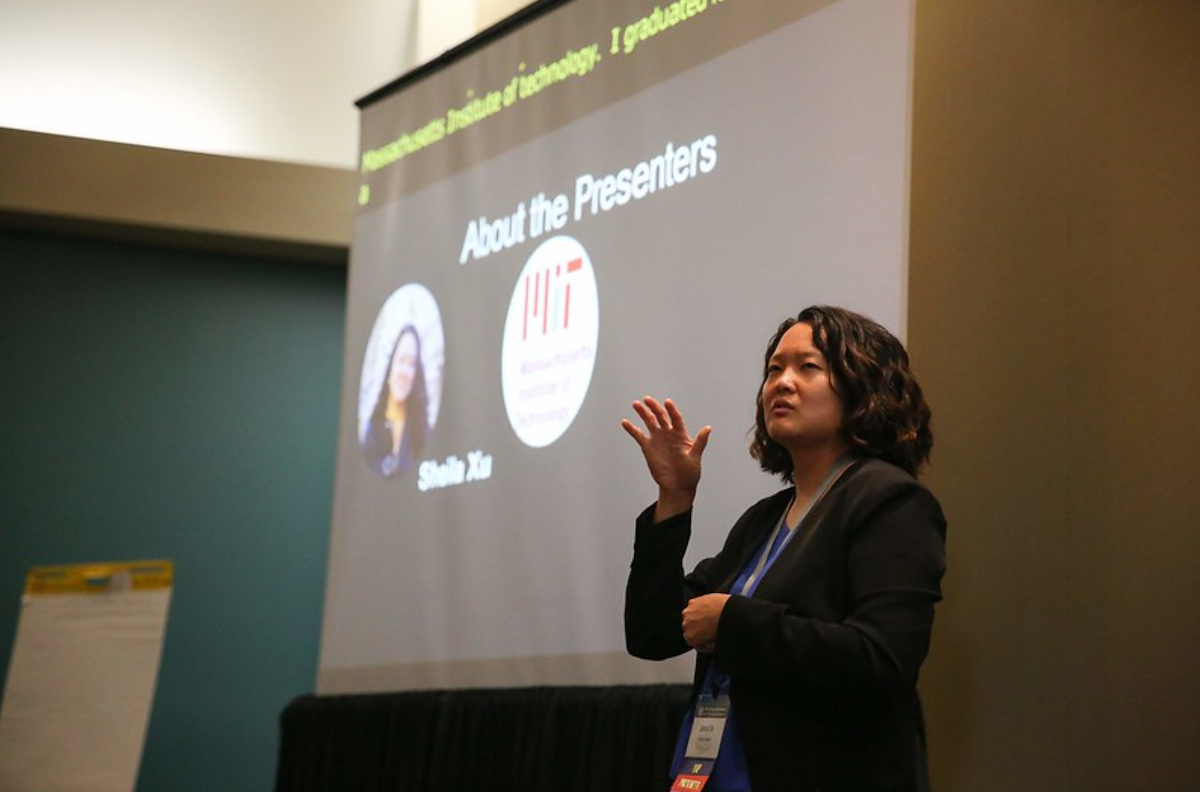
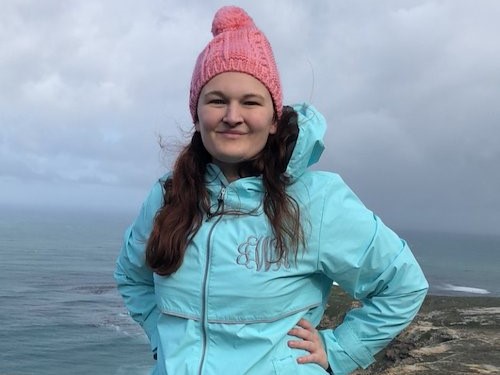
Five externs were selected and two of the five were Fulbrighters:
Sheila Xu: Sheila has an extensive background in international exchange. While a sophomore at Massachusetts Institute of Technology (MIT), she was able to conduct research on deaf entrepreneurs in Europe and the United Kingdom. After graduation, she taught American Sign Language and Deaf Culture in Italy and went on to conduct research in the country as a Fulbright U.S. Student.
We highlighted Sheila’s extern project -- a resource guide for people with disabilities, including deaf students, about finding international exchange opportunities, and resources for reasonable accommodation and accessibility in Italy -- in November. In the guide, Sheila covers a variety of topics such as the benefits of going abroad, navigating bureaucracy, disability rights in Italy, access to healthcare, financial resources, how to find locals with disabilities, and how Italians generally view people with disabilities. Get a copy of Sheila's Italy access guide.
Johna Wright: Johna has participated in a number of international exchange opportunities in South Africa, Sweden, and the United Kingdom. Most recently, Johna studied Comparative Social Policy and Welfare at Tampere University in Finland as a Fulbright U.S. Student.
For her extern project, Johna partnered with disability advocacy organizations and disabled student groups to organize a webinar to empower students with disabilities to participate in study abroad. Follow-up advising sessions covered students with disabilities' interests, concerns, and goals to participate in international exchange and provide them with targeted resources. Access a transcript of the student panel.
Sheila and Johna’s work ensures that more students with disabilities have access to the same leadership opportunities as their non-disabled peers. The NCDE was proud to launch the first-ever Access to Exchange Externship and looks forward to providing professional development to young leaders and to promoting accessibility in international exchange to more people with disabilities.
The National Clearinghouse on Disability and Exchange (NCDE) is a project of the U.S. Department of State's Bureau of Educational and Cultural Affairs, designed to increase the participation of people with disabilities in international exchange between the United States and other countries, and is supported in its implementation by Mobility International USA (MIUSA).
